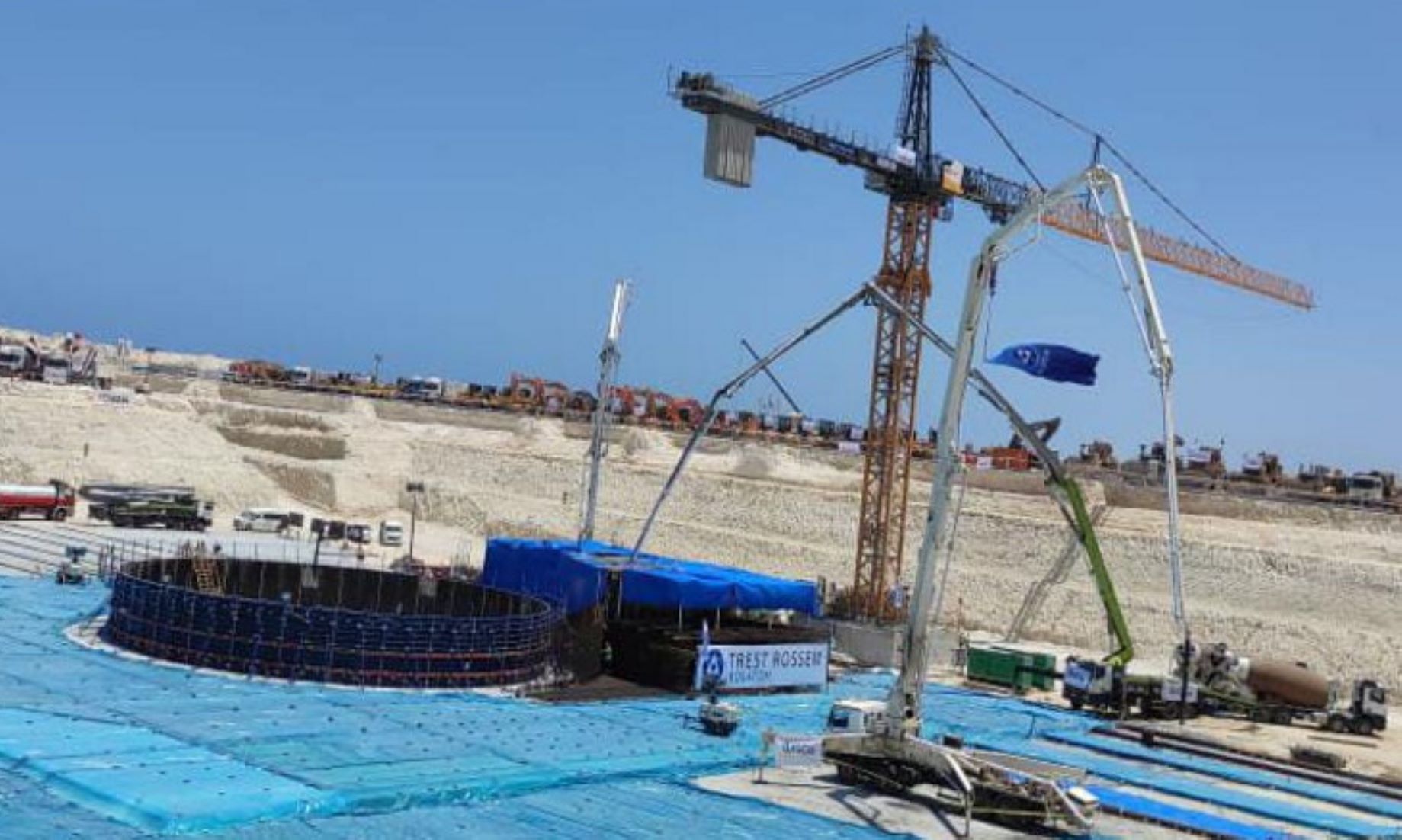CAIRO, Jul 22 (NNN-MENA) – Egypt began constructing the first reactor unit of the El-Dabaa nuclear power plant, sending a signal that, the country’s plan to build its first nuclear power plant is rolling smoothly, the Egyptian government announced yesterday.
El-Dabaa plant, located in the Mediterranean province of Matrouh, some 300 km north-west of Cairo, is Egypt’s first nuclear power station.
“Having its own nuclear energy industry has been a dream for the Egyptian people, for more than half a century,” said Egyptian Minister of Electricity and Renewable Energy, Mohamed Shaker, during the ceremony of the first concrete pouring for the Unit 1 reactor on Wednesday.
“We are on the verge of fulfilling the dream,” he added.
The concrete pouring “constitutes a brightening sign on the road of implementing a nuclear programme in Egypt, with partners from the Russian side,” he said, adding, the programme helps overcome two obstacles facing Egypt’s sustainable development: electricity and water.
The programme is based on an agreement between Egypt and Russia, that entered into force in Dec, 2017, with the building of four reactor units, each with a capacity of 1,200 megawatts, at a total construction cost of 28.75 billion U.S. dollars.
About 25 billion dollars, or 85 percent of the budget, is financed by Russia, through a 22-year repayment loan. Egypt will pay the remaining 15 percent in installments.
“Egypt has joined the nuclear club. Rosatom will build cutting-edge power units of VVER-1200 design,” Alexei Likhachev, director-general of Russia’s State Atomic Energy Corporation (ROSATOM), told the ceremony, referring to the generation III+ VVER-1200 pressurised-water reactor, the core power-generating unit developed by the Russian firm.
Shaker said, the reactors will be loaded with “an unprecedented range” of safety systems, to perform internal containment and guard VVER-1200 against external impacts.
The plant will be the largest-scale construction cooperation between Egypt and Russia, since the Aswan High Dam, he added.
According to ROSATOM, the Russian side will build the plant and supply nuclear fuel for its entire life cycle, as well as, training and support services for the first 10 years of its operation.
It will also build a special storage facility and deliver casks for storing spent nuclear fuel, ROSATOM said in a statement.– NNN-MENA





